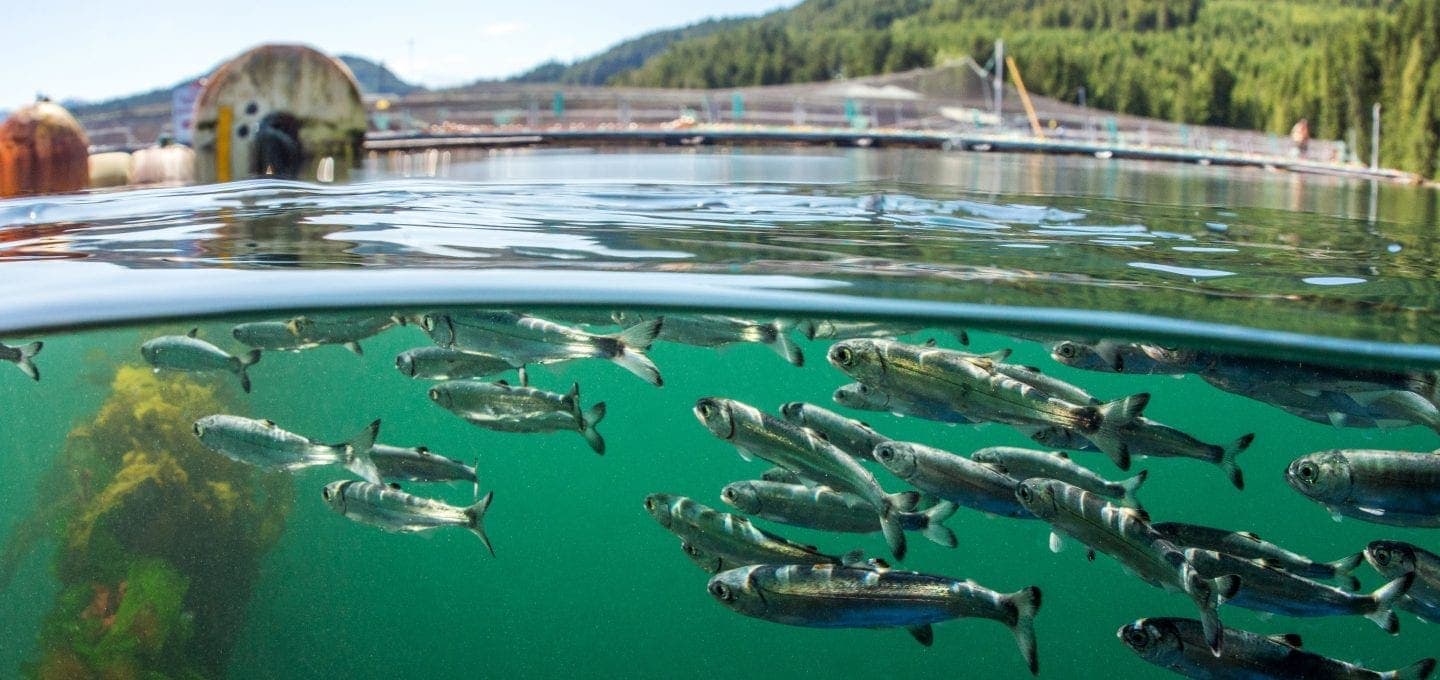
Members and partners of the Our Sound, Our Salmon coalition write WDFW to request impartiality in viral testing
A scientific paper released on May 7th, scheduled to be published in the journal FACETS later this month by a team of scientists from the federal Department of Fisheries and Oceans Canada (DFO) and the University of British Columbia (UBC), reports that Piscine Reovirus (PRV) can cause cell rupture of red blood cells resulting in anemia and potentially causing lethal kidney and liver disease in Chinook salmon. The PRV virus is widespread throughout Atlantic salmon marine net pen farms in Puget Sound and British Columbia.
The paper is co-authored by Kristi Miller-Saunders, Head of Molecular Genetics at DFO, and was released by the Strategic Salmon Health Initiative, a federally incorporated Canadian organization dedicated to the conservation and restoration of wild Pacific salmon and their natural habitats in British Columbia and the Yukon.
In the past, Washington Department of Fish and Wildlife (WDFW) and Cooke Aquaculture, the company owning all Atlantic salmon net pens in Washington state, have dismissed the risks associated with PRV and have neglected to take an appropriately precautionary approach when it comes to PRV. This new research illustrates the recklessness of this approach, providing strong evidence that PRV causes severely debilitating effects in Chinook salmon. PRV has been found in 100% of escaped farmed Atlantic salmon so far tested from a net pen that collapsed near Cypress Island last summer. PRV has also been found in 80% of BC farmed salmon.
The findings reported by Miller and co-authors raise immediate and pressing concerns that the amplification of PRV in salmonid migratory routes by Atlantic salmon net pens poses a significant risk to wild Chinook salmon, especially to outmigrating juveniles. In a 2017 study, wild salmon utilizing migratory routes that passed near Atlantic salmon farms were shown to have far higher PRV infection rates than those in migratory routes without net pens. As is the understanding of the Our Sound, Our Salmon coalition, WDFW recently made the decision to test for PRV in Washington’s Atlantic salmon hatcheries and net pens and agreed to exclude farmed Atlantic salmon infected with PRV from public waters. Without a doubt, yesterday’s groundbreaking report impresses great urgency upon this testing.
A group of 26 members and partners under the banner of Our Sound, Our Salmon commend WDFW’s decision to test Atlantic salmon in Washington for PRV. We agree that Atlantic salmon infected with PRV should not be planted in Washington’s waters.
We have grave concerns, however, over the agency’s chosen means for testing for this virus. We understand that WDFW has dictated that a private veterinary consulting group will be conducting viral sampling and testing for PRV, and that this chosen group is currently a consultant for, and has testified vociferously in public on behalf of, the Atlantic salmon aquaculture industry in Washington state. This group has a clear conflict of interest with respect to the outcome of such tests that renders it an inappropriate choice for the task. We are deeply concerned that any private entity, even an entity that had not previously exhibited a predilection for the aquaculture industry, could fall under the influence of outside interests, and could experience difficulty in testing for PRV in an impartial manner.
To address these concerns, twenty-six organizations and businesses under the banner of Our Sound, Our Salmon delivered a letter of petition today to WDFW Acting Director Joe Stohr. In the letter, the coalition requests state conducted testing for PRV in order to ensure impartiality and to assure the public that the Atlantic salmon net pen industry is not imparting harm to Chinook and other wild salmon, the killer whales that depend on their abundance, and our cherished marine environment.
For more information, please contact:
Kurt Beardslee
Executive Director, Wild Fish Conservancy
425.788.1167 or [email protected]
Join our mailing list to recieve important updates on our work, the latest wild fish news, & opportunities to take action to support wild fish.
This site is protected by reCAPTCHA and the Google Privacy Policy and Terms of Service apply.
Wild Fish Conservancy is recognized as a 501(c)3 non-profit by the IRS